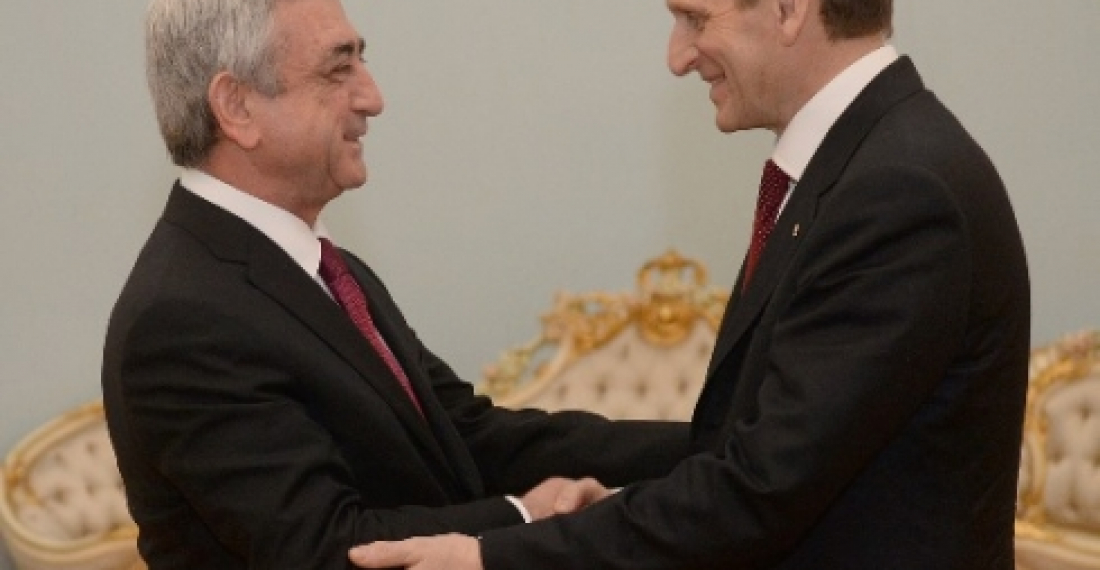Спикер Государственной Думы, нижней палаты парламента Российской Федерации, Сергей Нарышкин, набросился с критикой в адрес санкций, наложенных на его страну за её роль в кризисе в Украине, во время выступления перед армянскими коллегами в Ереване.
Российское информагенство ИТАР-ТАСС сообщило, что Нарышкин заявил парламентариям, что Россия не боится никаких санкций и квалифицирует их как экономический и политический шантаж. Санкции "не имеют никакой правовой основы", сказал спикер, обращаясь к Национальному Собранию Армении. "Если называть вещи своими именами, это политический и экономический шантаж," заявил спикер Госдумы. "Но они [те страны, которые ввели санкции против России] не смогут ничего добиться", сказал спикер.
В Ереване Нарышкин встретился с президентом Армении Сержем Саргсяном. Пресс-служба президента Армении сообщила, что президент и гость из России обсудили "вопросы, связанные с безопасностью и стабильностью на Южном Кавказе". Визит прошел на фоне растущей обеспокоенности в Армении по поводу поставок российской военной техники в Азербайджан. И президент и члены парламента Армении в последние недели выражали тихую критику в адрес России по этому поводу. Критика в адрес России звучит редко среди политической элиты Армении, и эта критика отражает высокую степень разочарования в этом аспекте российской политики.
Источник: commonspace.eu
фото: президент Армении Серж Саргсян приветствует председателя Государственной Думы Федерального Собрания Российской Федерации Сергея Нарышкина в Ереване, 30 марта 2015 года (фото любезно предоставлено пресс-службой президента Армении).






